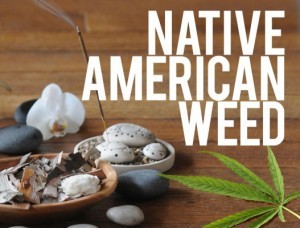Gabe Galanda recently kicked off the "Tribal Participation In the Cannabis Industry"-conference in Portland, Oregon. Gabe delivered a monologue that attempted to bring some rationality to the Indian lawyer-fueled hysteria regarding the possibilities of marijuana commerce in Indian Country.
I am bearish on the notion that tribal marijuana commerce will be the next white buffalo. I predict it will never come close to even approaching what Indian gaming has done economically for Indian Country.State marijuana taxes are flattening. We have already seen state pot taxes dipping in Colorado and Washington, and we are seeing more modest marijuana taxation in states that have most recently legalized recreational marijuana like Oregon. In turn, the margins provided by tribal value-added tax exemption wanes.
The marijuana market is saturating locally and nationally, and increasingly so with every state that legalizes marijuana. Once California in particular comes online, perhaps as soon as next year, the recreational marijuana market will be blown wide open nationally.
In turn, value-added tax exemption will prove to be the primary if not only real commercial advantage for tribes. But again, the margins there will be slim. They will not approach, for example, tribal value-added tobacco tax exemption, where the tax margins only widen with ever-increasing state tobacco sin taxation.
Then there are the demographics. Unlike cigarette smokers, I suspect that today's casual tribal marijuana consumers will generally not travel any significant distance to buy a tax-exempt joint or gram of pot. That too is a creature of tax rate. So unless a tribe is located within a major metropolitan area, cheaper marijuana will not likely attract a high volume of consumers.
Finally, as with every other lifestyle economy that tribes create or leverage, there will be a legal double standard imposed upon tribes who engage in tribal marijuana commerce. Federal and state forces will have some form of chilling effect. The only question is how cold they’ll make the tribal market.
Don’t take me wrong. For some tribes, recreational or medicinal marijuana commerce will make economic sense; it can help bring significant new non-Indian dollars to rural or impoverished tribal communities. For other tribes, such commerce will serve as a worthwhile amenity to other tribal enterprises, like a casino or gas station.
The pivot for all tribes, however, is local government. All politics is local, especially marijuana politics. To make tribal marijuana work on-reservation under informal federal guidance, and practically speaking, tribes will need the support of state and local government—which have historically been tribes’ deadliest enemies. That support can be obtained, but not without sovereignty costs.
In all, for the vast majority of tribes, tribal marijuana commerce simply will not be the white buffalo that folks, mostly suspect "developers," and fee-driven tribal lawyers, are professing it to be.
Gabriel S. Galanda is the managing partner of Galanda Broadman, PLLC, in Seattle. Gabe is a descendant of the Nomlaki and Concow Tribes, belonging to the Round Valley Indian Tribes of Northern California.





